Geopolitical Risks Creating Uncertainty
Prepared by Brandon Yee, CFA, CAIA, and Thomas Connelly, CFA, CFP®
DEVELOPED MARKETS
Developed Markets Fall
In the month of February, international developed stock markets returned -1.56%. The UK and Pacific ex Japan recorded returns of 0.79% and 2.81%, respectively. The U.S. and Europe ex UK lagged other markets. International developed markets are down -5.90% YTD while the U.S. market is down -8.49%. Developed markets fell as central banks, particularly the Federal Reserve, discussed plans to raise interest rates throughout the year. Investors are expecting the Fed to raise rates seven times in 2022, up from the earlier estimate of four to five rate hikes. In addition, the Russian invasion of Ukraine caused markets, especially European markets, to decline further.
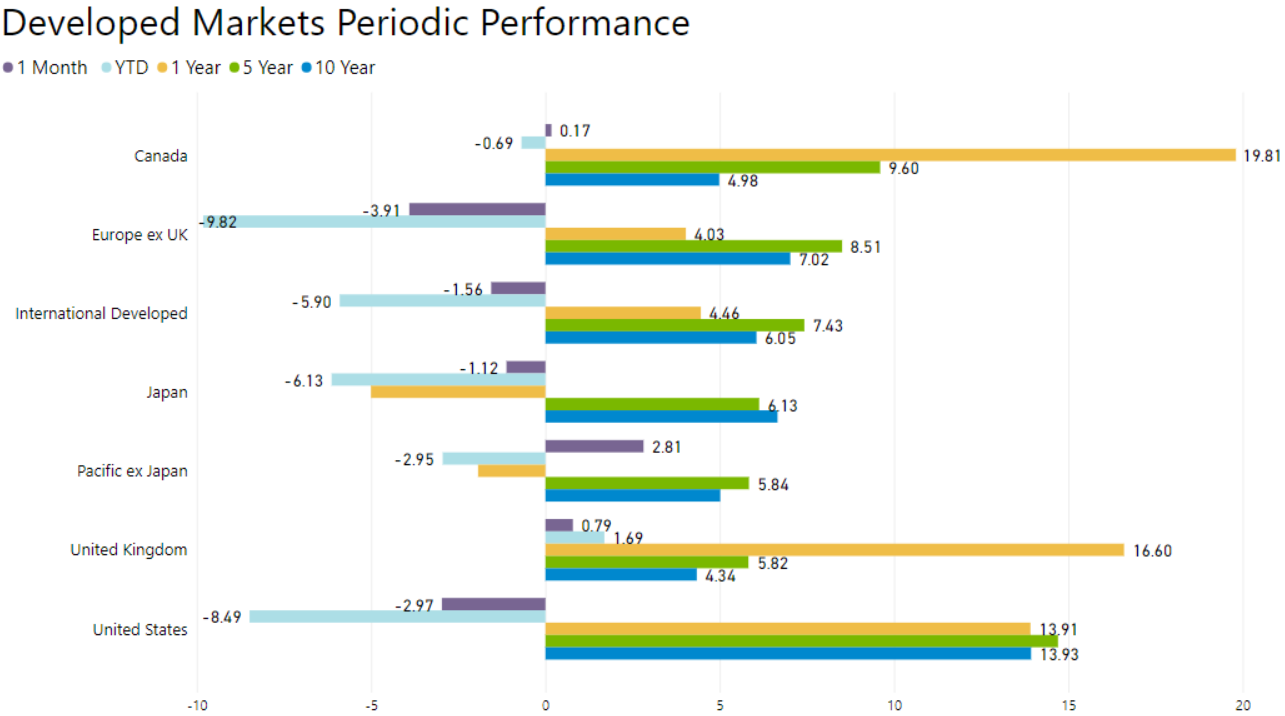
EMERGING MARKETS
Russian Financial Markets Crash
Broader emerging markets posted a -2.93% return for the month. Brazil and Mexico recorded positive returns of 4.70% and 4.92%, respectively. Russia and India lagged other markets in February. Russian markets were impacted by Russia’s invasion of Ukraine and the responding punitive sanctions imposed by the international community. Russia is down -56.87% YTD through February. At the time of this writing, trading of Russian securities has been halted. Given the limited exposure to Russia in emerging market funds and Russia’s relatively small economy, investors may benefit from rebalancing into emerging markets as their market valuations relative to the US market are near 15 year lows. Financial markets have historically bounced back from market drawdowns caused by wars.
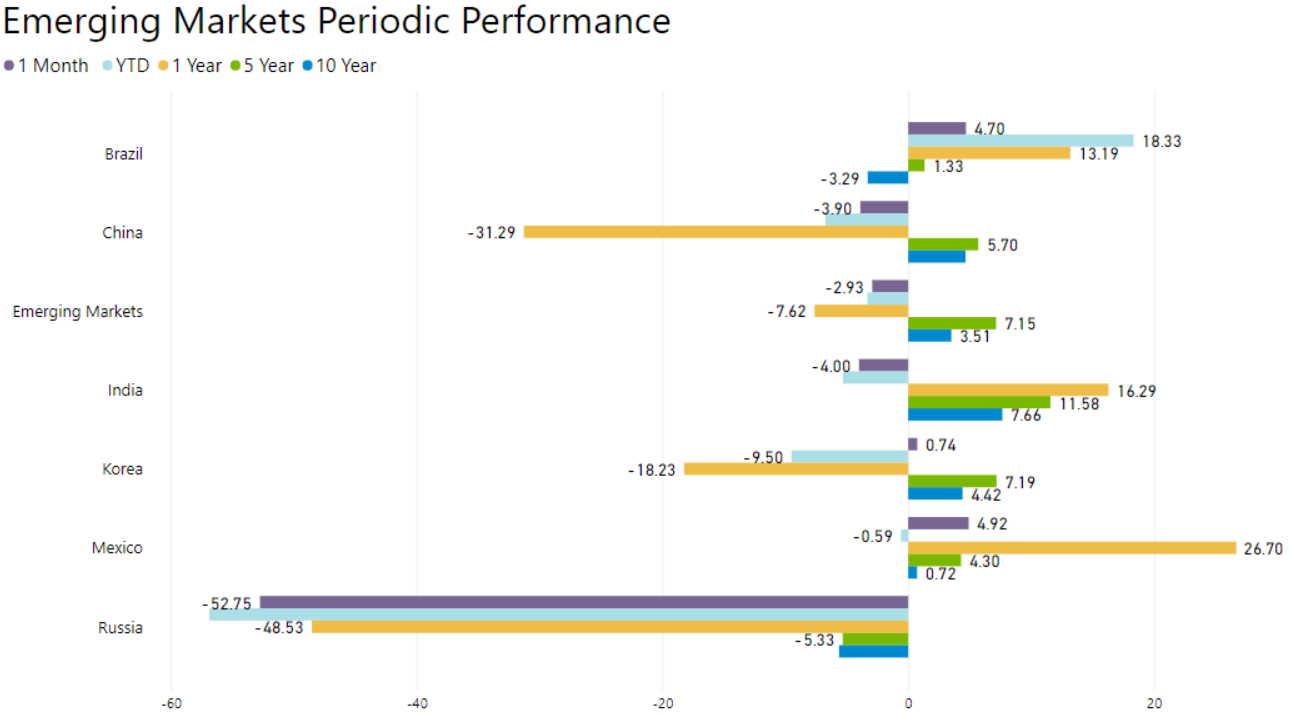
GLOBAL SECTOR
Energy and Infrastructure Outperform
Energy and infrastructure recorded positive returns of 4.99% and 2.51%, respectively, in February. Telecommunications and information technology lagged other sectors. Energy continues to do well after a strong 2021 performance. The energy sector is up 21.79% YTD and 45.01% over the past year. Oil supply and demand dynamics continue to be favorable. Energy prices rose after Russia, which is a major supplier of oil and gas, invaded Ukraine. European and U.S. energy companies are making the decision to divest their Russian assets, which may impact supply down the line.
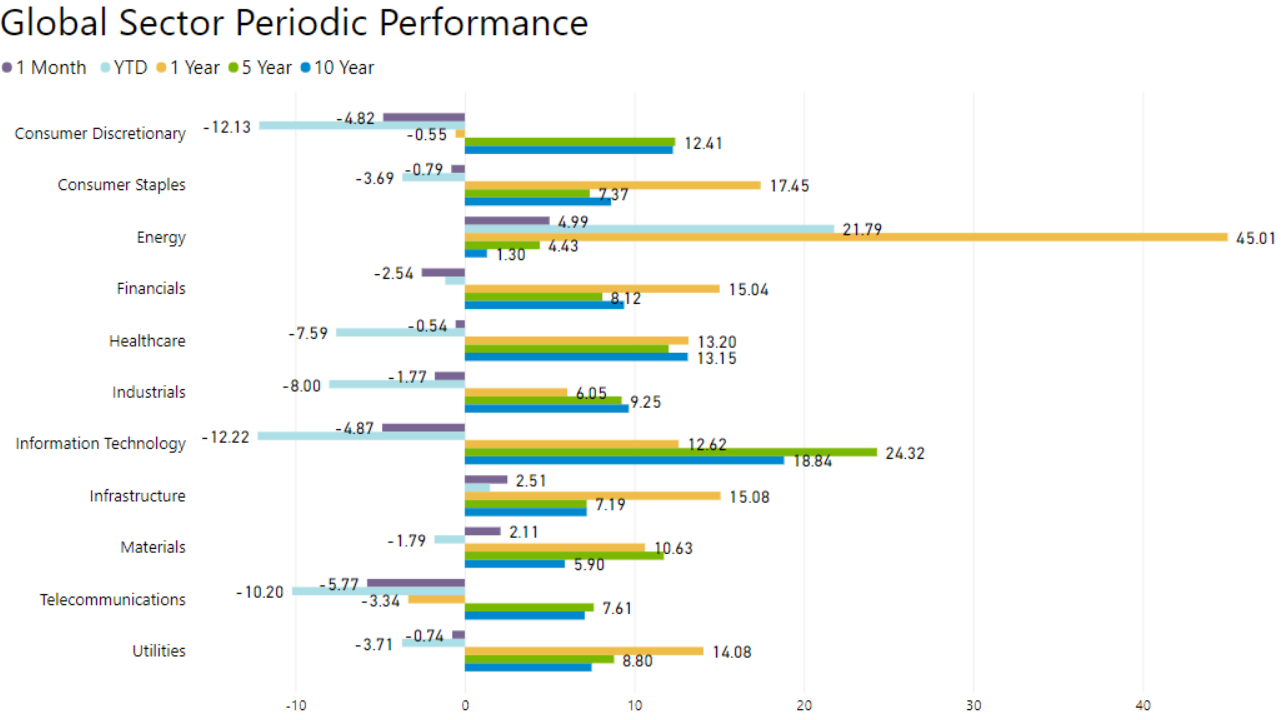
DOMESTIC EQUITY FACTORS
Growth Underperforms
In February, value outperformed growth in the large-cap space and the small-cap space. Momentum recorded a return of -1.22%. Small-cap value stocks continue to outperform small-cap growth stocks. Their ten year annualized return is now at 10.66%, slightly below small-cap growth’s ten year return. Even after value’s strong performance, value stocks are still very cheap relative to growth stocks. Value-oriented sectors such as energy, financials, and materials may still have much more room to run.
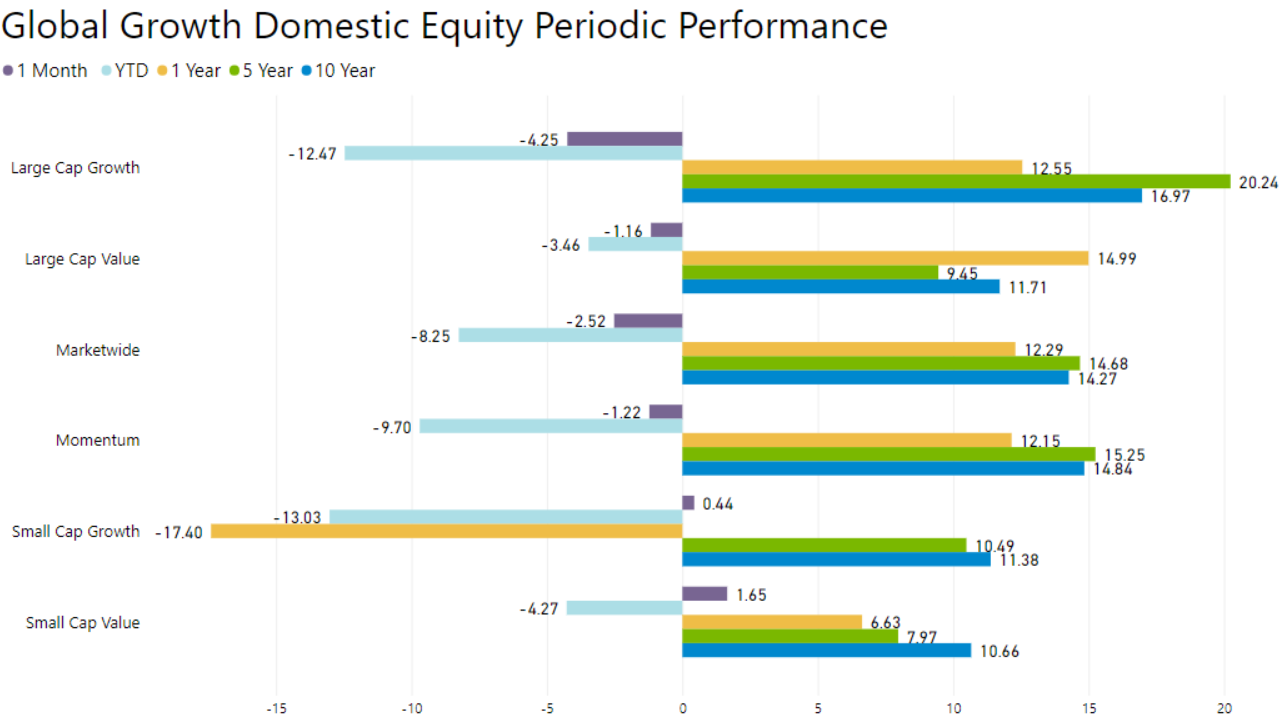
FOREIGN EQUITY FACTORS
Value Outperforms in International Markets
In the international developed markets, value outperformed growth in the large-cap and small-cap space. Momentum recorded a return of -1.93% while small-cap emerging market stocks posted a return of -1.38% this month. Valuations of value stocks are still very low relative to growth stocks in both international developed and emerging markets, which is consistent with the US market. The rotation from growth into value may resume as investors become wary of high valuations in growth stocks. Rising interest rates may also pose more of a risk to growth stocks than value stocks.
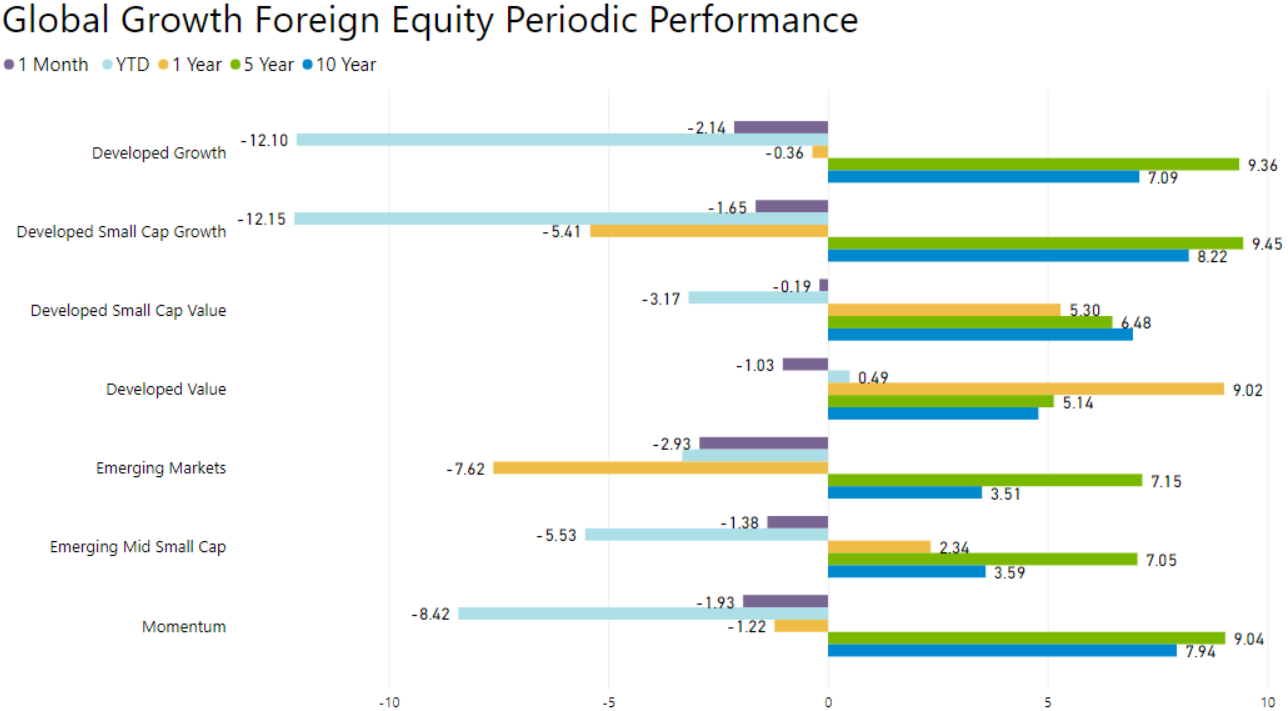
LIQUIDITY PROVIDERS
Multiple Interest Rate Hikes Expected in 2022
In February, the three-month Treasury bill index returned 0.01% for the month. The Federal Reserve is expected to begin raising interest rates in March. Investors expect multiple rate hikes this year due to the recently high inflation numbers and labor scarcity. However, savers will still face low real interest rates for the foreseeable future. The CPI has increased by 7.53% over the past year through the end of January.
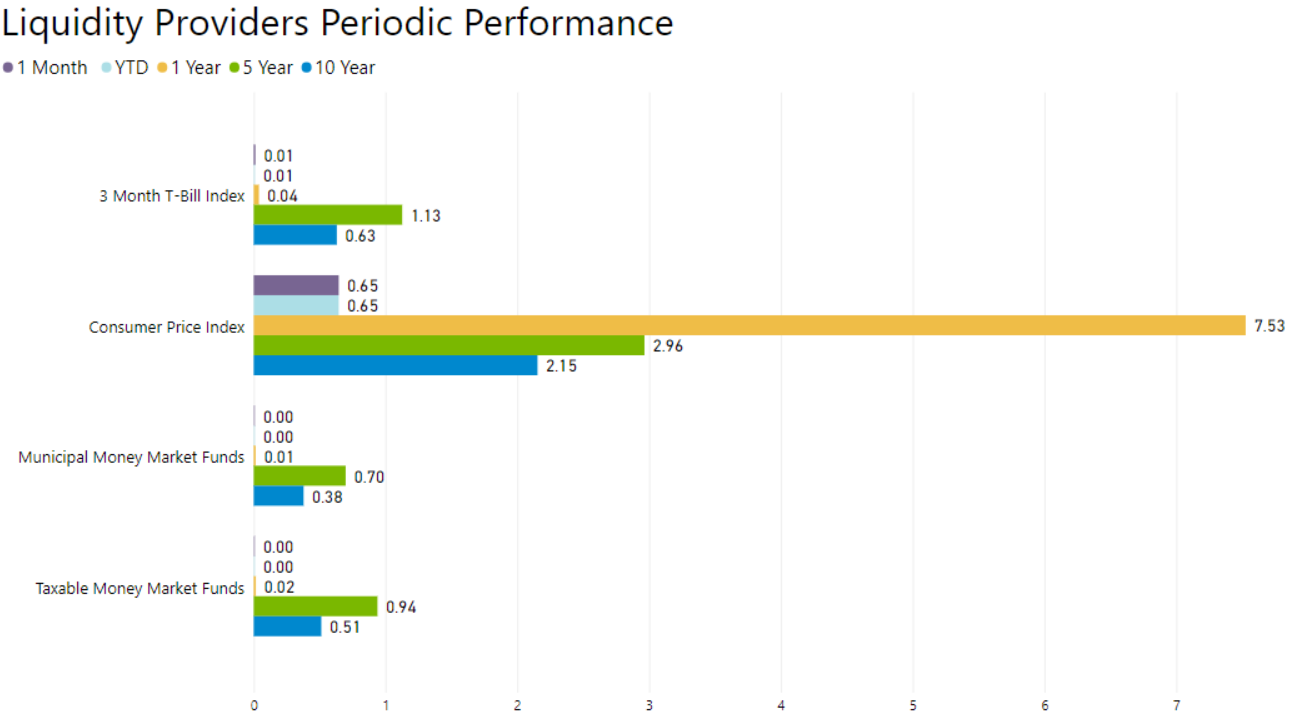
DISINFLATION DEFLATIONARY HEDGES
Fixed Income Investments Drop in February
The returns of deflationary hedges were mostly negative for the month. Long-term government bonds returned -1.46% in February. The Bloomberg Barclays U.S. Agg Bond Index returned -1.13% for the month. Among the deflationary hedges, only the SwissRe Global Catastrophe Bond index has a positive performance YTD. Catastrophe bonds are up 5.22% over the past year, providing a competitive yield without the equity-like volatility of leveraged loans and high-yield bonds. Real yields continue to remain around historical lows.
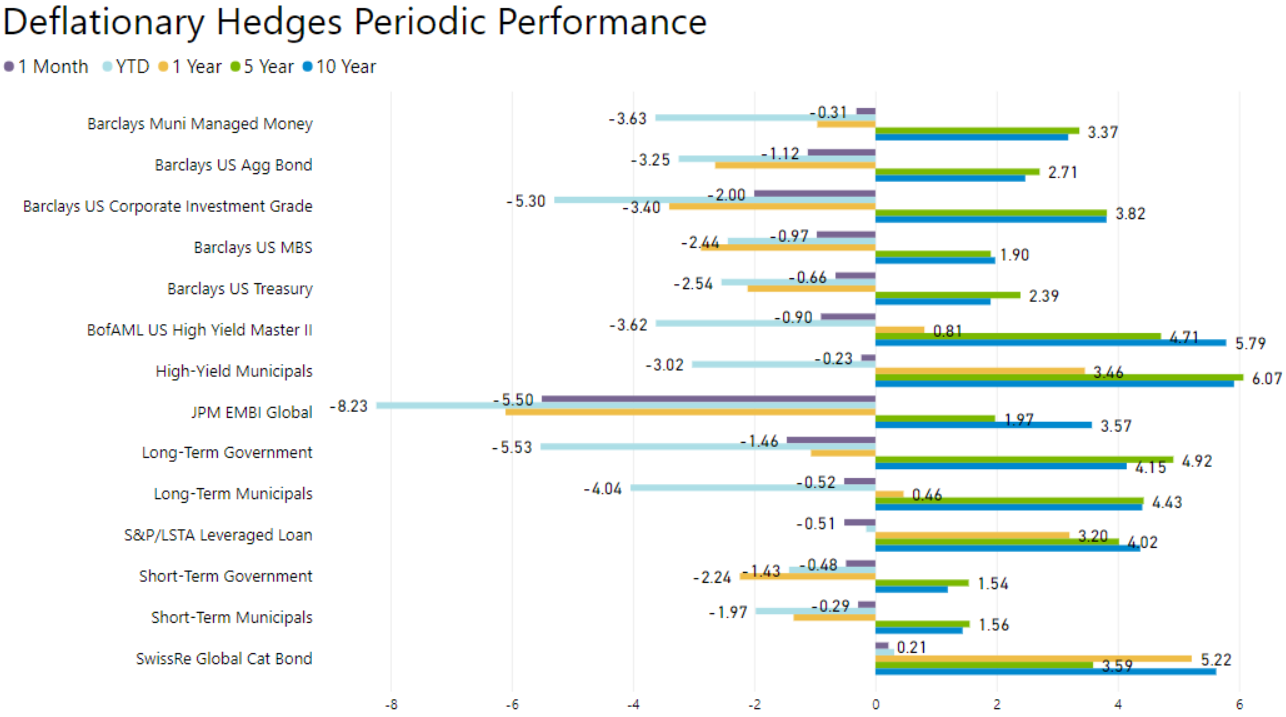
INFLATION SENSITIVE INVESTMENTS
Gold Bullion Rebounds
Inflation-sensitive investment returns were mixed for the month. The Alerian MLP and WTI crude oil were up 4.82% and 9.51%, respectively. The Bloomberg Commodity index posted a return of 6.23% in February. WTI crude and US natural gas are up 64.35% and 43.20%, respectively, over the past year. Real estate, which can be negatively impacted by rising interest rates, is down approximately -9% YTD. Gold bullion and gold miners are up YTD, providing a nice hedge against Russian geopolitical risks.
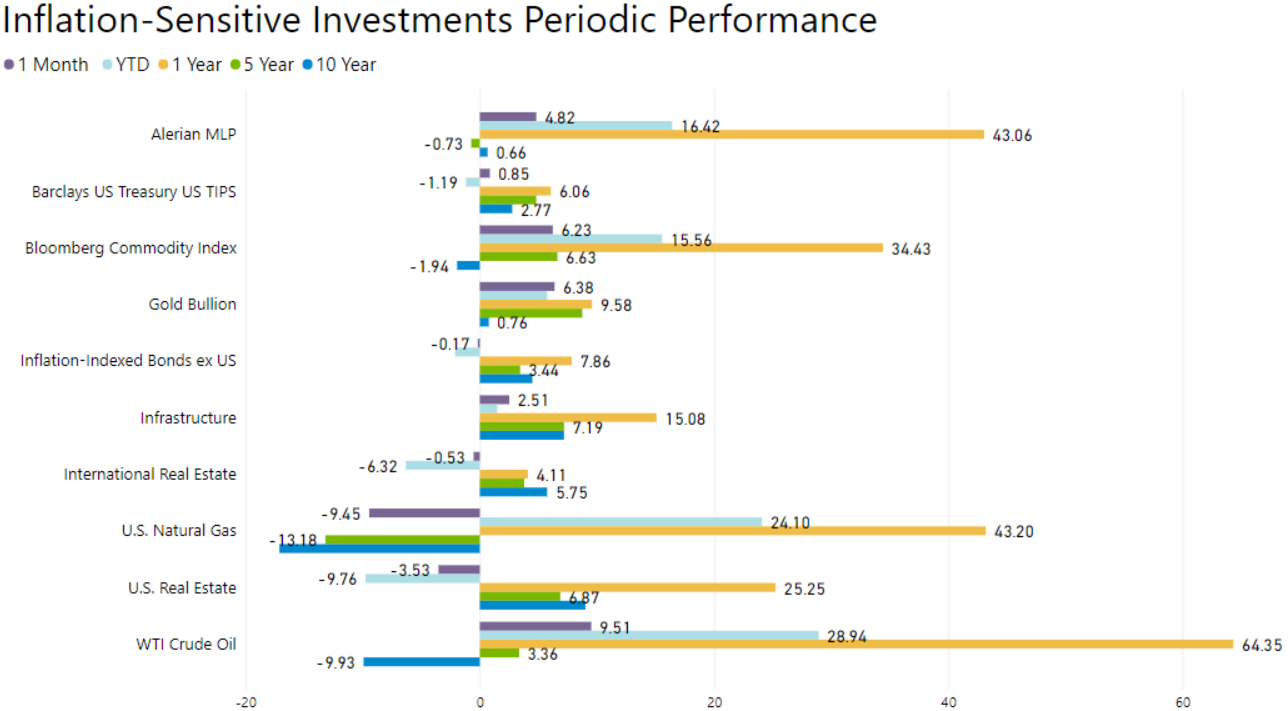
WORLD CURRENCIES
U.S. Dollar Mixed Versus Other Currencies
Over the past three months, the U.S. dollar appreciated against the Yen, Euro and Swiss Franc. The U.S. dollar depreciated against the British Pound, the Chinese Yuan and Mexican Peso over the same period. However, the continuation of large U.S. fiscal deficits may weigh on the U.S. dollar in the medium-term to long-term. Gross federal debt to GDP stands at 123% and is forecasted to increase through the decade.
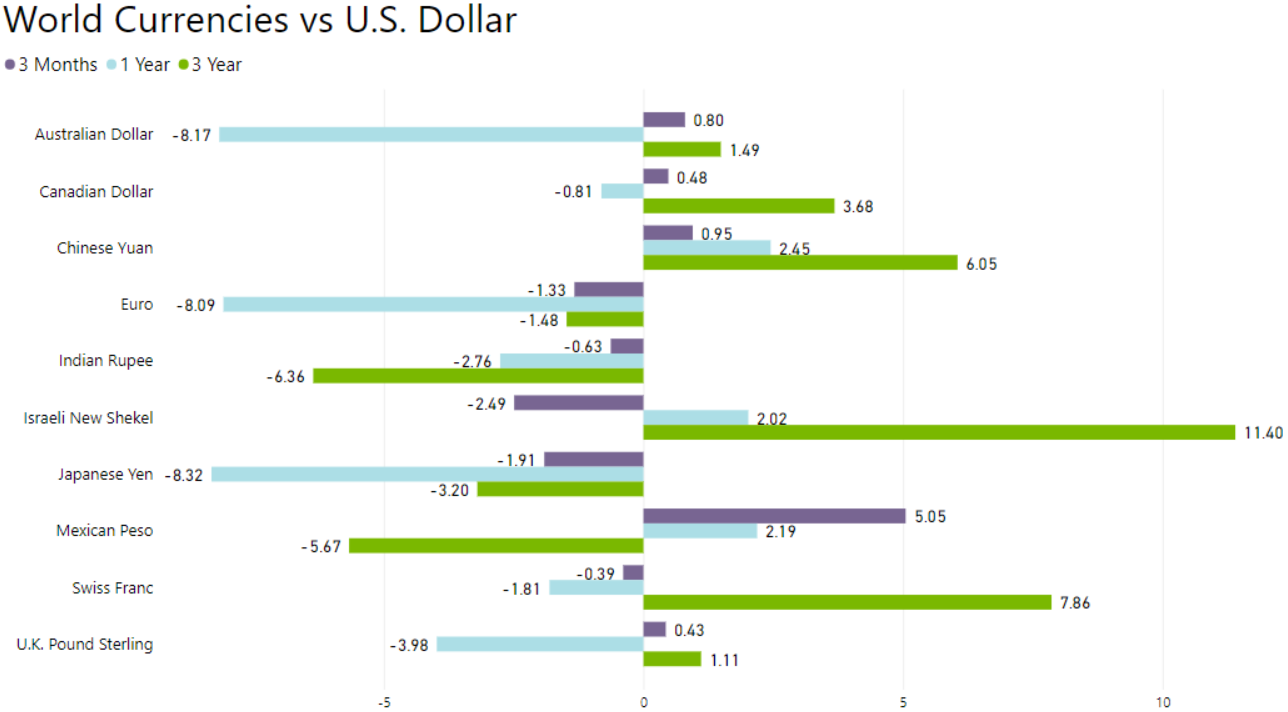
Brandon Yee, CFA, CAIA – Research Analyst
Brandon conducts investment due diligence for Versant Capital Management, and designs and implements tools and processes to support the firm’s research. His background in biology and finance help him to look at challenges from multiple angles, resulting in unique and well-rounded approaches and solutions.
Disclosure: Please remember that past performance may not be indicative of future results. Different types of investments involve varying degrees of risk, and there can be no assurance that the future performance of any specific investment, investment strategy, or product (including the investments and/or investment strategies recommended or undertaken by Versant Capital Management, Inc.), or any non-investment related content, made reference to directly or indirectly in this article will be profitable, equal any corresponding indicated historical performance level(s), be suitable for your portfolio or individual situation, or prove successful. Due to various factors, including changing market conditions and/or applicable laws, the content may no longer be reflective of current opinions or positions. Moreover, you should not assume that any discussion or information contained in this article serves as the receipt of, or as a substitute for, personalized investment advice from Versant Capital Management, Inc. To the extent that a reader has any questions regarding the applicability of any specific issue discussed above to his/her individual situation, he/she is encouraged to consult with the professional advisor of his/her choosing. Versant Capital Management, Inc. is neither a law firm nor a certified public accounting firm and no portion of the article content should be construed as legal or accounting advice. If you are a Versant Capital Management, Inc. client, please remember to contact Versant Capital Management, Inc., in writing, if there are any changes in your personal/financial situation or investment objectives for the purpose of reviewing/evaluating/revising our previous recommendations and/or services. A copy of the Versant Capital Management, Inc.’s current written disclosure statement discussing our advisory services and fees is available upon request.
